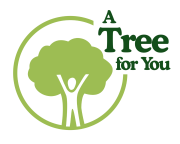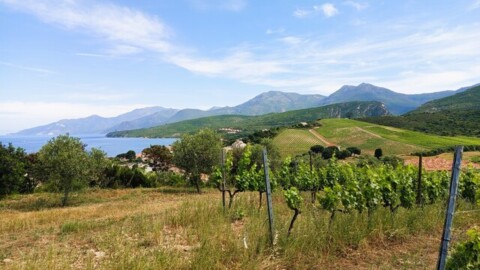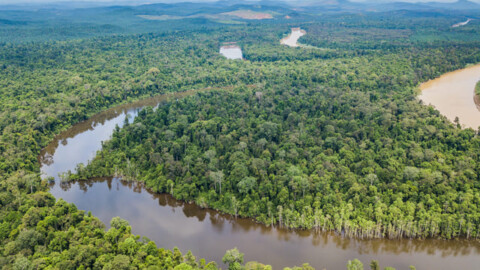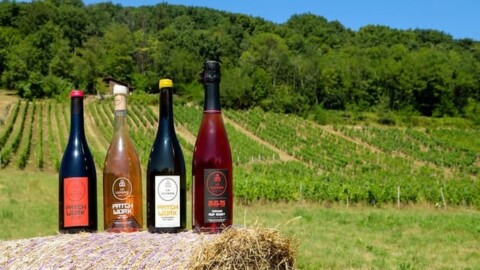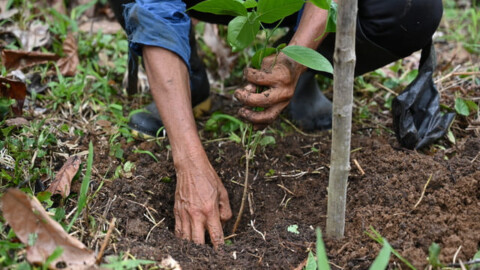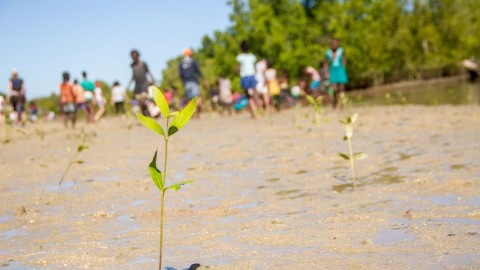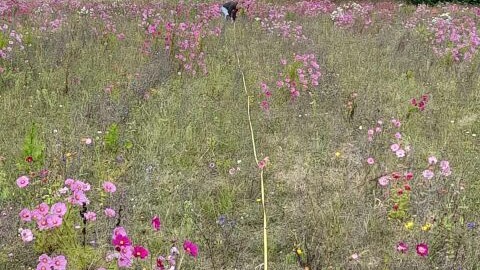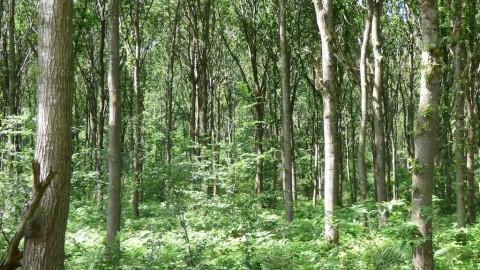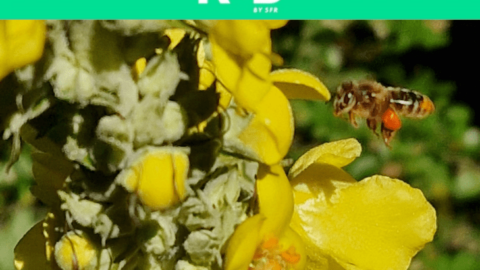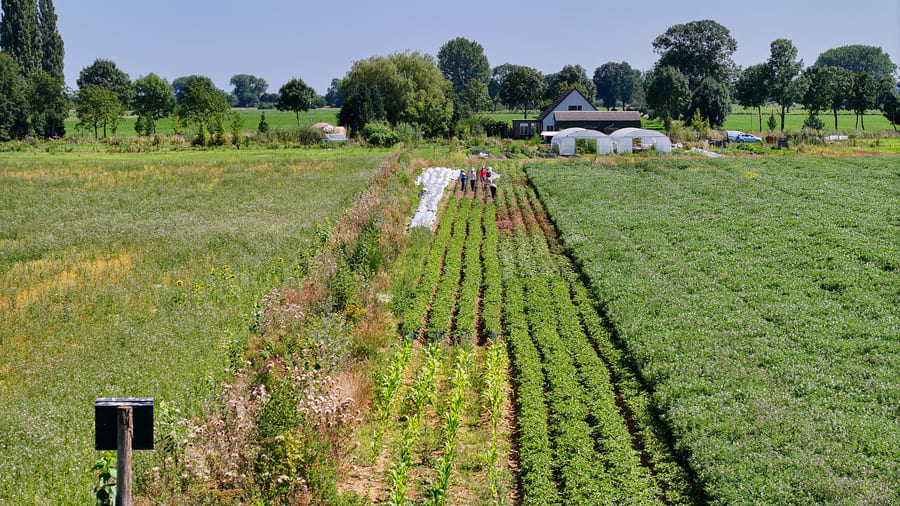
Background & challenges
This initiative is taking place in a critical agricultural and environmental context in the Netherlands. There is strong pressure on land resources, biodiversity is declining, intensive farming is causing significant pollution (pesticides, nitrogen excess), and farming practices are export orientated. In response, the association Land van Ons—a partner of A Tree for You – is looking to acquire farmland and support farmers in implementing sustainable, low-impact agricultural systems that deliver strong ecological benefits.
At De Biesterhof, previously an industrial dairy farm, the transition is underway towards regenerative agriculture that combines agroforestry, organic market gardening, and permaculture.
The food forest project is part of this broader approach to ecological restoration, local production, and civic reappropriation of land. Planting 1,670 trees across 5 hectares aims to:
- Improve biodiversity, sequester carbon, regenerate soil, enhance water retention, and create ecological corridors.
- Support local production of fruits, nuts, and herbs, create jobs in farming, and develop short supply chains.
- Revitalise the landscape, restore traditional landscape features, and strengthen the connection between people and their environment.
The De Biesterhof project will also play a key social and educational role by regularly welcoming volunteers and involving up to 100 participants during planting days. These events foster community spirit, civic engagement, and stronger social ties. The farm will also be openingits doors to a wide educational audience, ranging from primary schools to universities like Wageningen and Radboud, as well as specialised agricultural institutions.
Out of the five hectares planted, two will be used for visits, internships, workshops, and research projects to raise awareness of sustainable farming and biodiversity.
Project type

Agroforestery
Beneficiaries

The project will strengthen De Biesterhof farm. Local communities will benefit from richer biodiversity, ecological farming, and access to healthy local products. Schools, farmers, and citizens will engage in training and activities, sharing in the project’s social and environmental benefits.
Number of trees

A total of 1,670 long lasting trees
Species planted

Different fruit and nut trees, as well as berry shrubs, gastronomic and aromatic species and pioneer and support species
Partner

Land Van Ons
Fruit trees: apple (Malus domestica), pear (Pyrus communis), plum (Prunus domestica), cherry (Prunus avium), quince (Cydonia oblonga), medlar (Mespilus germanica), persimmon (Diospyros kaki), fig (Ficus carica), cornelian cherry (Cornus mas), serviceberry (Amelanchier alnifolia), apricot (Prunus armeniaca).
Nut trees: sweet chestnut (Castanea sativa), walnut (Juglans regia), almond (Prunus dulcis), hazel (Corylus avellana), pecan (Carya illinoinensis).
Berry shrubs: blackcurrant (Ribes nigrum), redcurrant (Ribes rubrum), chokeberry (Aronia melanocarpa), raspberry (Rubus idaeus), autumn olive (Elaeagnus umbellata), honeyberry (Lonicera caerulea), hardy kiwi (Actinidia arguta), akebia (Akebia quinata), grapevine (Vitis vinifera), mulberry (Morus spp.).
Pioneer and support species: black locust (Robinia pseudoacacia), magnolia, bay laurel (Laurus nobilis), staghorn sumac (Rhus typhina), elder (Sambucus spp.), bamboo, Chinese hawthorn (Crataegus pinnatifida), bladdernut (Staphylea pinnata).
Gastronomic and aromatic species: Sichuan pepper (Zanthoxylum piperitum), Chinese cedar (Toona sinensis), as well as a selection of aromatic herbs and edible plants in the lower layers.
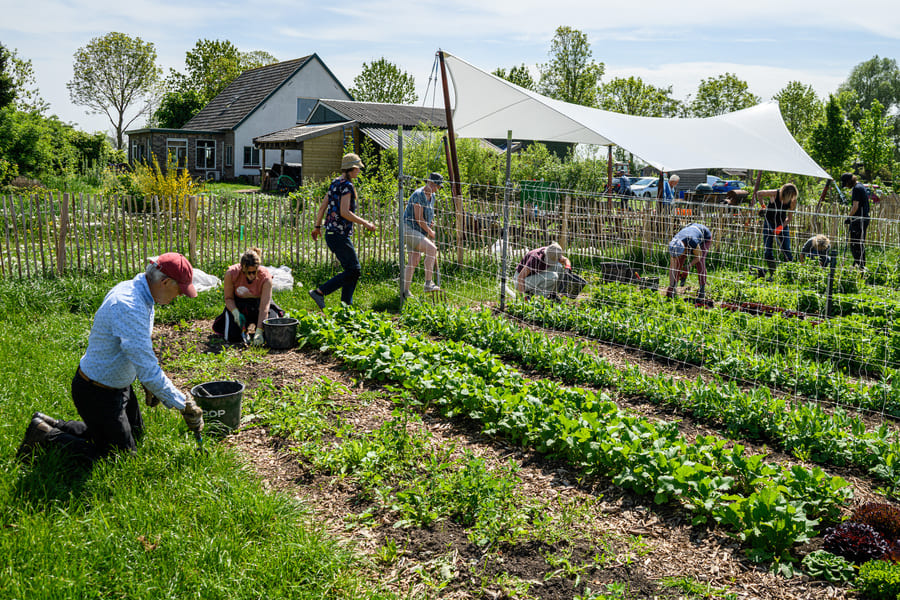
Works timeline
2025–2029
- January to October: maintenance of trees planted the previous year
- January to June: selecting species for the second round of planting, market study
- August: ordering trees
- September: preparatory work (localised levelling, building a pond, installing signs and teaching equipment)
- October to January (following year): tree planting
2029–2032
- Monitoring of all plantations will continue for at least three years after planting
- Assessment of productivity, biodiversity, educational and social impacts
Planting partners
Budget
The total budget to be raised is €99,866, or €59.80 per tree, broken down as follows:
- 90% allocated to the planting project, i.e. €53.82 per tree:
- Forest, fruit and shrub plants: €17.28
- Soil preparation, protection, mulching: €14.36
- Facilities: information board, bench, children’s play area: €7.16
- Machines: €1.19
- Professional pruning advisor and pruning workshops: €1.20
- Awareness-raising and communication costs for De Biesterhof: €1.79
- Risks/unforeseen events: €1.79
- Land Van Ons overheads: €3.11
- Collection, monitoring and communication costs for A Tree for You (9.93%): €5.94
- 10% (€5.98) allocated to A Tree for You’s overheads
